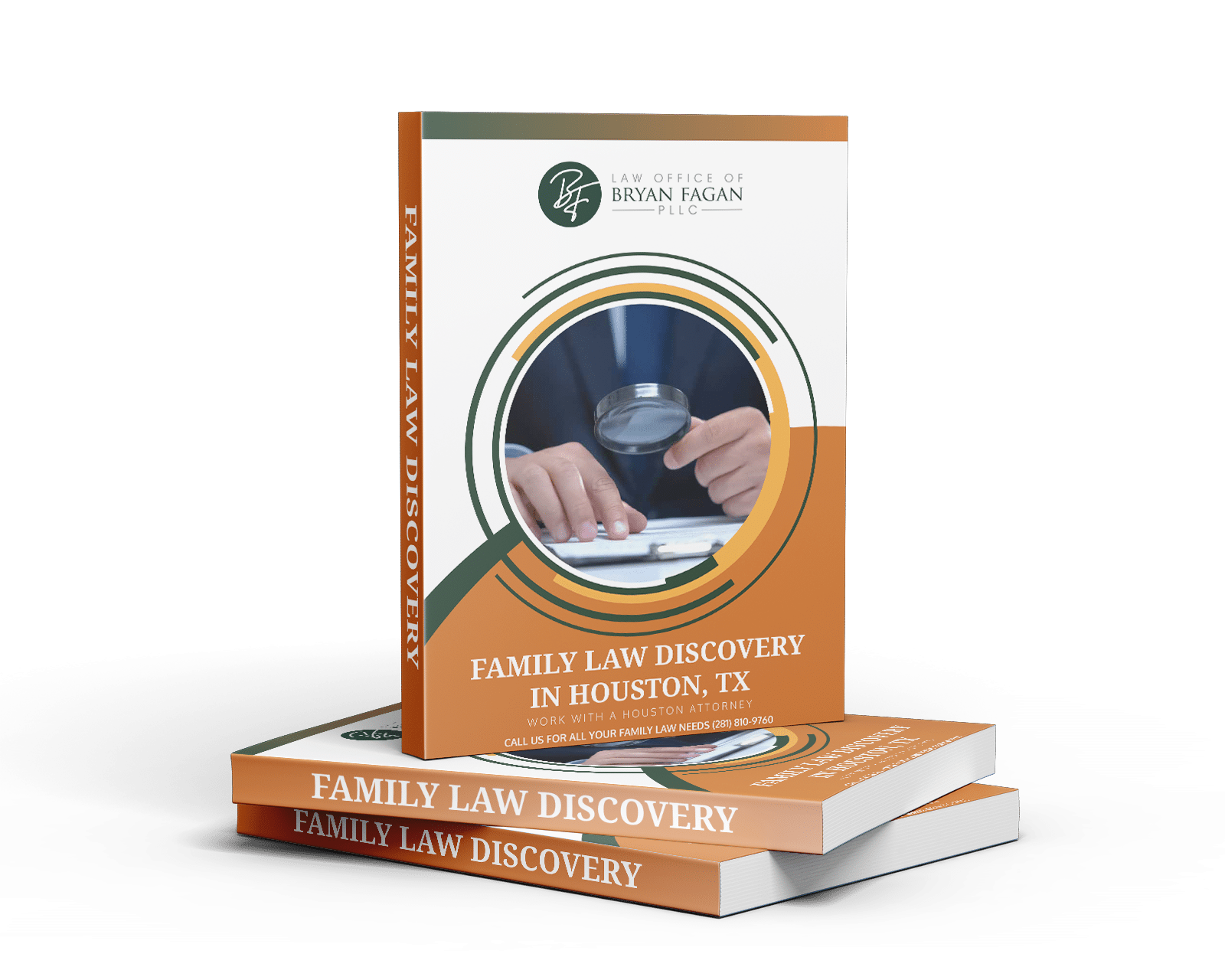
Dividing up your property in a divorce goes far beyond balancing assets and debts—it’s a deeply emotional and personal part of the process. While Texas law aims for a fair division under its community property rules, “fair” doesn’t always mean “equal,” and it rarely accounts for the emotional value tied to a home, business, or family heirloom. You’re not just sorting through titles and accounts—you’re deciding how to rebuild your life. The choices you make during property division can shape your financial stability and peace of mind for years to come. By understanding the legal and personal impact of dividing up your property in a divorce, you can make informed decisions that protect both your rights and your future.
Dividing Your Property in a Divorce
When people think of property division during divorce, they often picture cash, cars, or who gets the house. But this process goes far deeper than dollars. It can affect your peace of mind, your parenting, and your future. In Texas, property division isn’t just about financial value. It involves emotion, control, and sometimes power. What you walk away with often shapes how you rebuild after the divorce.
How Property Is Divided in Texas
Texas follows community property laws. This means anything acquired during the marriage belongs to both spouses. Courts divide this property in a way that they see as fair—not always equal. Fair division doesn’t always mean a 50/50 split. The court looks at many factors when making that call.
Community property includes:
- Income earned during the marriage
- Homes, cars, and other assets bought together
- Debts incurred while married
- Retirement accounts, even if held in one spouse’s name
Separate property usually includes:
- Assets owned before marriage
- Gifts or inheritance received by one spouse
- Personal injury settlements for pain and suffering
To claim something as separate property, you need clear proof. Without that, it may end up being shared.
Why Emotional Value Matters
Some property has more than market value. A painting, a family heirloom, or even a pet can hold emotional weight. These items often become major points of conflict. Not because they’re expensive, but because they mean something personal.
People sometimes fight harder over these than over bank accounts. That’s because objects often symbolize moments, roles, or sacrifices. A spouse might want the house not just for shelter, but to keep a sense of stability. Another might want the vacation home because it holds childhood memories for their kids.
Courts won’t always factor in emotional value. They focus on ownership and contribution. But you and your spouse can agree on a split that respects your personal attachments if you stay open to compromise.
Property Division Affects Children Too
Parents often overlook how property division affects their kids. The house, the car, the furniture—these all shape your child’s environment. If one parent keeps the home, the children may feel safer. If both parents downsize, that transition may affect their school, social life, and routines.
It also matters who keeps what when it comes to shared technology, learning tools, and vehicles. Will both parents have space for the children? Do they have equal access to what the kids need daily?
These questions matter as much as financial worth. A smart property split supports the child’s lifestyle without adding extra stress during the change.
Power Dynamics Can Influence Property Division
Not all divorces start on equal ground. One spouse might earn more, manage finances, or control all the accounts. That can lead to power struggles during property division.
In some marriages, one partner may have no idea how much they own or owe. That lack of information can lead to unfair outcomes unless addressed early.
Texas courts encourage open disclosure. Both parties must list all assets and debts. If one hides money or undervalues property, the court may penalize them.
To avoid this, gather documents early:
- Pay stubs and tax returns
- Bank statements and credit card bills
- Loan documents and mortgage records
- Deeds, car titles, and retirement plans
Knowing what’s on the table helps both sides make fair decisions.

Fair Doesn’t Always Mean Equal
Texas law uses the phrase “just and right” division. That means a judge can divide property unequally if they believe it’s fair based on the facts.
Factors a judge may consider:
- Each spouse’s earning ability
- Fault in the breakup (if one spouse caused the split)
- Custody of children
- Future needs and health
- Wasted or hidden assets
In many cases, the court awards the family home to the parent who has primary custody of the children. This helps keep the children in a stable place, even if it means an uneven division of other property.
High-Value Items Often Bring Conflict
Certain items always trigger stronger emotions or legal battles:
1. The Family Home
Often the biggest asset. One person might want to keep it, while the other may want their share of its value. Keeping the house usually means refinancing to remove the other person’s name.
2. Retirement Accounts
These include pensions, 401(k)s, and IRAs. Texas law considers the portion earned during the marriage to be community property. Dividing these accounts needs special court orders.
3. Businesses
If one spouse owns a business, the court may treat it as community property—at least in part. This can involve appraisals, buyouts, or other agreements that affect the future of the company.
4. Debts
Property division isn’t just about assets. It includes debt. Courts may assign credit card balances, loans, or tax bills based on who incurred them and why. Sometimes both spouses share the burden.

Avoiding Court Can Offer Better Results
Many couples settle property division outside of court. Mediation or collaborative divorce gives you more control over the outcome. These methods cost less, move faster, and often lead to better results for both sides.
Mediators help you and your spouse list all property, assign values, and negotiate who keeps what. If you reach a full agreement, you can submit it to the court for approval.
This is a great path when both sides want to avoid drawn-out fights and maintain a cooperative relationship post-divorce.
Don’t Overlook the Long-Term Impact
Dividing property affects your financial future. You’re not just deciding who gets what today—you’re shaping the rest of your life. Some decisions might bring quick relief but cause long-term problems.
For example:
- Keeping the house may feel good now, but can you afford the mortgage alone?
- Giving up retirement savings for immediate cash may hurt later
- Taking on too much debt could limit your post-divorce options
Work through each decision with both short-term and long-term consequences in mind. Think beyond the courtroom and imagine life in six months or a year.
When You Can’t Agree, the Court Decides
If property division goes to trial, the judge decides who gets what. This removes control from both parties. Judges follow the law, but they won’t know every emotional or personal nuance.
You may lose things that matter to you if you leave it in the court’s hands. That’s why cooperation and preparation matter so much. Avoid court if you can. But if it’s unavoidable, go in with full records, clear goals, and realistic expectations.
Final Thoughts
Dividing up your property in a divorce is about more than just splitting assets—it’s about laying the foundation for your next chapter. What you walk away with can shape your financial security, your sense of stability, and even your relationships with family members. Every decision, from who keeps the house to how debts are handled, carries long-term consequences. That’s why it’s crucial to stay informed, understand your legal rights, and approach each step with care. If you and your spouse can communicate and cooperate, you’ll have a better chance of protecting what truly matters while making the transition smoother for everyone involved.

![Adobe Stock 62844981[2]](https://www.bryanfagan.com/wp-content/uploads/2023/09/AdobeStock_628449812.jpeg) If you want to know more about what you can do, CLICK the button below to get your FREE E-book: “16 Steps to Help You Plan & Prepare for Your Texas Divorce”
If you want to know more about what you can do, CLICK the button below to get your FREE E-book: “16 Steps to Help You Plan & Prepare for Your Texas Divorce”
Other Articles you may be interested in:
- Texas Divorce Overview: Dividing Community Property and Debts
- What are the steps that the courts take in dividing property?
- Texas Family Law Courts: Dividing Property in a Divorce
- Why is Separate Property Important and How to Keep it Separate in a Texas Divorce?
- What Wikipedia Can’t Tell you About Texas Divorce and Marital Property Division
- Texas Divorce Property Division Enforcement
- Separate Property in a Texas Divorce?
- Does it Matter Whose Name is on Title or Deed of Property in a Divorce in Texas?
- Business Owners and Business Assets in a Texas Divorce
- What to do when your divorce decree does not include a marital asset?
- High Net Worth Divorce / High Asset Divorce
Frequently Asked Questions
Law Office of Bryan Fagan, PLLC | Houston, Texas Divorce Lawyers
The Law Office of Bryan Fagan, PLLC routinely handles matters that affect children and families. If you have questions regarding Divorce, it’s important to speak with one of our Houston, TX Child Divorce Lawyers right away to protect your rights.
Our Divorce lawyers in Spring TX are skilled at listening to your goals during this trying process and developing a strategy to meet those goals. Contact Law Office of Bryan Fagan, PLLC by calling (281) 810-9760 or submit your contact information in our online form. The Law Office of Bryan Fagan, PLLC handles Divorce cases in Houston, Texas, Cypress, Klein, Humble, Kingwood, Tomball, The Woodlands, the FM 1960 area, or surrounding areas, including Harris County, Montgomery County, Liberty County, Chambers County, Galveston County, Brazoria County, Fort Bend County and Waller County.





